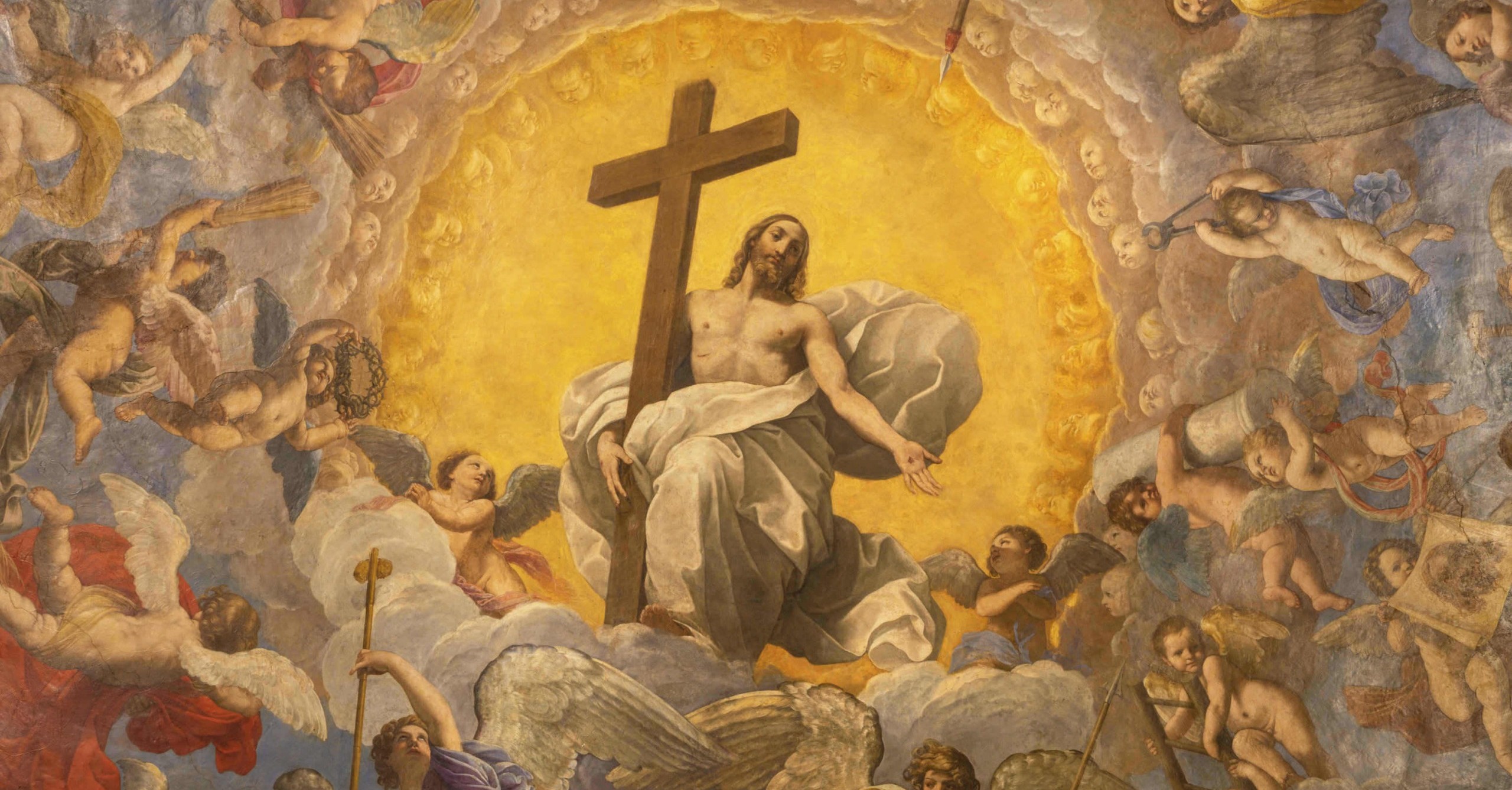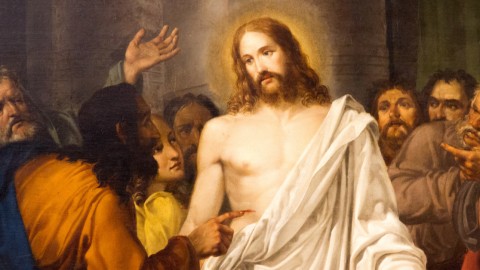AscensionSunday, 29 May 2022

Acts 1:1-11, Ephesians 1:15-23, Luke 24:45-53
Every year we experience the same seasons, but in some ways they are different each year. Likewise in the Church we celebrate the same feasts every year, yet each celebration is different.
The power of human emotions
We are emotional beings, and we use our emotions in worshiping God. This is God’s gift to us, which also helps us to interact with others – otherwise we would be like robots. It allows us to empathize with the world and with others’ sufferings, to rejoice with those who rejoice, and to sorrow with those who are sorrowful.
We in the West have tried to eliminate suffering, sickness, and disease, and to make life convenient for everyone. The war in Ukraine surprised many people, and caused them to ask why it happened. Many things cannot be eliminated through mere acquisition of knowledge.
Emotions can influence and control, but they are without logic and reason, and need to be combined with them.
The disciples experienced an emotional “roller-coaster”. They entered Jerusalem with Jesus, singing, “Hosanna to the Son of David!” Then He was arrested, beaten, crucified, and died; and the disciples scattered and went their own way. After three days He rose from the dead, and some of the women said He was alive; at first the others were sceptical, but then their fear, discouragement, dejection, and sadness turned to euphoria and excitement. We can imagine how they struggled to process all that was happening. For forty days they savoured the presence and company of Christ in His resurrected body; but then He ascended on high.
One can imagine the disciples felt a sense of abandonment. Some people have gone through very difficult life experiences, such as being abandoned by parents and perhaps even being sent to an orphanage. Most of us have experienced a sense of abandonment in one way or another: when a spouse died, when you needed help and no one was there, or when you were sick and no one called you.
The disciples wanted Jesus to stay (as when Jesus was transfigured and Peter wanted to stay there); but they couldn’t stop Him from ascending.
A bad plan?
The Ascension is often overlooked. It is narrated only in seven verses in Luke and Acts, and it is not mentioned by Matthew. The Ascension is sometimes overshadowed by the Resurrection, but the Resurrection would not be complete without it.
To some people, the Ascension might seem like a bad plan. If Jesus were here in His resurrected form, evangelism would be easy. It is difficult to tell people we believe in someone whom we don’t see in visible form (apart from the Eucharist). The world prioritizes physical proofs: people want tangible evidence in order to believe.
He could also do more to comfort us. Imagine if you were sick in hospital and He visited you.
“If Christ were physically beside us, His comforting hand would be with us when we experienced sorrows. Instead, we must pray to the Saviour whom we cannot see, and whom often we cannot hear.”[1]
Sometimes, particularly in times of feeling abandoned, we ask, “Where is God?” Many who lost their loved ones during the pandemic have asked this question.
The necessity of the Ascension
No one wants to be abandoned, but Jesus was adamant that His Ascension was a necessity:
* It was His return to His Father after completing His mission on earth [2]
* To establish His Kingdom [3] – the work of Christ did not end on the cross
* To send the Holy Spirit [4]
* To prepare a place for His people [5]
* To be exalted and glorified [6]
* To exercise His High Priestly ministry [7]
* So that believers can follow Him where He goes [8]
His Ascension also indicates the manner of His return. Psalm 24:7-10 says:
“Lift up your heads, O gates!
and be lifted up, O ancient doors!
that the King of glory may come in.
Who is the King of glory?
The Lord, strong and mighty,
the Lord, mighty in battle.
Lift up your heads, O gates!
and be lifted up, O ancient doors!
that the King of glory may come in.
Who is this King of glory?
The Lord of hosts,
he is the King of glory.”
At His Ascension, Jesus sat at the right hand of God the Father,[9] because He owns heaven and earth. By the power of the Cross, He is the ruling King, and this will be consummated when He returns.
God will not abandon us
What is the cure to the disciples’ sense of abandonment? What should I do when I feel abandoned? This will be addressed next week.
Man will disappoint us, but God will not. If you feel a sense of abandonment, acknowledge it to Him, and forgive anyone by whom you feel abandoned.
Father, we turn to You today. At times, especially when we experience perplexing events, we ask where You are and why You abandoned us. As we acknowledge Your presence, may that sense of abandonment be changed into courage and hope. Although we may not see You, You promised to be with us until the end of the age. We don’t know what will come our way, but we know deep inside through the gift of faith that You never leave or forsake us. We don’t know everything, but may You surround every single one of us with an assurance of Your presence. Let that sense of abandonment be turned into acceptance, and may we have the courage to move on, knowing that we’re not alone. You will not abandon us, even to the grave. Let that be the faith of Your Church today, in Jesus’ name.
Study questions:
1) In what ways might we experience the same feasts and seasons in the Church differently from year to year? Why do we experience different seasons in our lives (individually, as families, and as a church)?
2) Are emotions always beneficial? Why are science and technology unable to eliminate suffering? How can we best respond to painful or difficult emotions?
3) Are you more emotional or rational and logical? Do you empathise with others and minister to those who are in need? What would help you to do so more effectively?
4) Although Ephesians 1:17-23 may not describe or specifically mention the Ascension, it refers to some of its consequences. How might the Ascension be “overshadowed by the Resurrection” yet necessary to complete it?
5) Would it have been an advantage for us if Christ had not ascended? How might it have affected our involvement in the Church’s mission and ministries? Would our faith have had to develop in the same ways?
6) Consider the reasons listed for the Ascension, and the supporting Scriptures suggested in the notes. Would God’s plan of salvation have been fulfilled, and what would we lack as Christians, if Christ has not ascended?
7) Have you had experiences where God acted (or didn’t act) in a way that seemed to you like a bad idea, but which later proved to be necessary or for the good? How can we respond in such situations, and what can we learn from them?
8) Did Jesus really leave His disciples when He ascended? In what ways is He still present in the world, with the Church, and with Christians today?
[1] In addition to this quotation, the above section is based on an excerpt from: Patrick Schreiner, The Ascension of Christ: Recovering a neglected doctrine (Bellingham, Washington: Lexham Press, 2020); published by Faithlife as “The Ascension of Jesus: what it is, why it’s often overlooked, and more”: https://www.logos.com/grow/the-ascension-of-jesus/ [retrieved 30.5.22]
The following references are editorial suggestions and are not exhaustive:
[2] John 16:28, 17:4
[3] Daniel 7:13-14, Psalm 110:1
[4] John 14:16-17, 16:7
[5] John 14:2-3
[6] Philippians 2:9-11, John 17:5
[7] Romans 8:34, Hebrews 9:11-15
[8] John 14:3
[9] Mark 16:19









